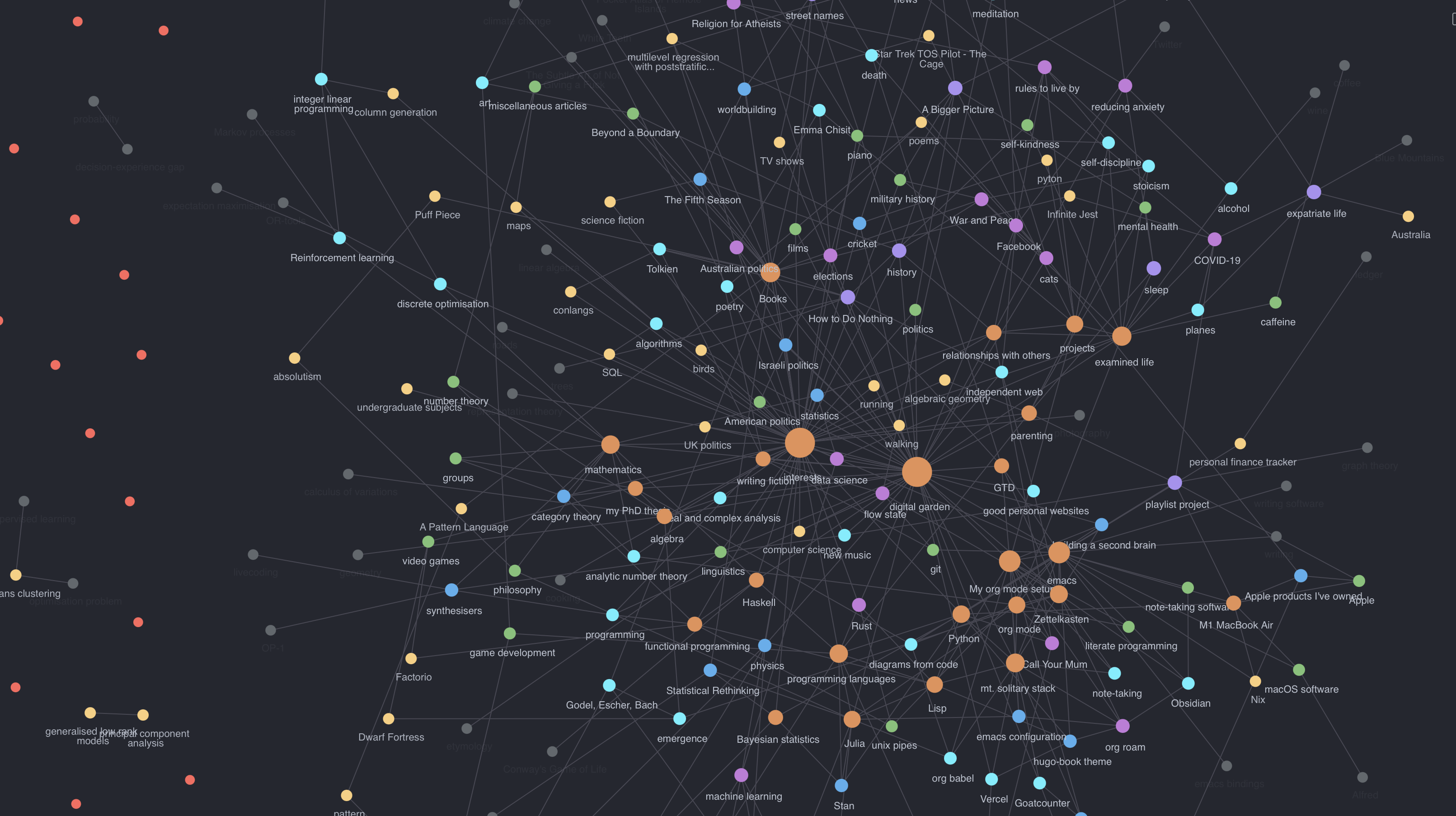Digital gardens #

I am inspired by the idea of a “digital garden”, which I think I first noted on Nikita Voloboev’s personal website in 2020.
- It should be a place to nurture my mind, my thoughts, and myself.
- It should be tended to constantly, but slowly, and develop and change consistently over many years.
- It should be public, because learning in public is important, but
- It shouldn’t be particularly easy to find. Something to stumble upon and wander through, like I have through so many other peoples’ interesting and varied online worlds.
I am interested in so many things, have so many thoughts and ideas and read so many different articles, books and blogs across the internet that I think there is value, purely for myself, in collecting everything into a single centralised “commonplace book”: this idea has become popular recently around the indie web among generalists and polymaths who like the idea of learning in public and of building a public repository that is, importantly, never finished or polished but rather always being improved and added to, just like the real process of learning. This process being out in the open can also potentially have value for other people who are learning similar things, or who are used to seeing fully-formed ideas and blog posts without understanding all the work that goes into thinking, researching and connecting ideas (Zettelkasten is ideal for this).
Topics / areas of interest #
Although this site is best thought of as a densely connected network, I have done my best to summarise a few of the main things that interest me and that I have notes in one form or another about scattered around this site.
- Books
- Cats
- Computer science
- Cricket
- Data science
- Elections
- emacs
- GTD / workflows / automation / tracking
- History
- Linguistics
- Mathematics
- Music
- Parenting
- Physics
- Poetry
- Politics
- Relationship with myself
- Relationships with others
- Society
- Statistics
- Technology
- Travel
- TV shows and films
- Walking and running
- Writing
2021-08-17 #
Interstital journalling is another interesting idea that connects quite naturally to digital gardens / Zettelkastens / personal knowledge bases.
2021-07-03 #
Some interesting chat recently in the Digital Gardens Telegram group, and the org-roam discourse group, around creating a “new web” of connected digital gardens. Agora (an unfortunate name that is already used for other stuff) is a very tech-oriented idea in this direction. This (Federated Wiki) was also linked in the discourse group.
The idea of linking digital gardens together in the usual sense (good old boring hyperlinks back and forth) isn’t new and doesn’t need to be implemented: that’s how the internet works and every digital garden I’ve seen is full of hyperlinks to other gardens. It just happens naturally. So the question that arises (and what happens in Agora for example), is should a “platform” come along and aggregate gardens into a single cohesive place. I don’t like this idea. It instantly replaces the idea of digital gardens being a place for individuals to create their own unique part of the public web, with the idea of competing opinions in a single aggregated place: i.e. social media.
Links and resources #
- Herman Martinus on how his product is his garden.
- John Boy on the “Hacker Lockdown”
- Mike Tannenbaum on digital gardens.
- Agora, an interesting experiment that links digital gardens into a single knowledge graph with many different authors. Don’t like the UI (at all) but it’s definitely an interesting idea. Also interesting how pages on the same topic from different authors are combined.
- Tom Critchlow on the architecture of blogging.